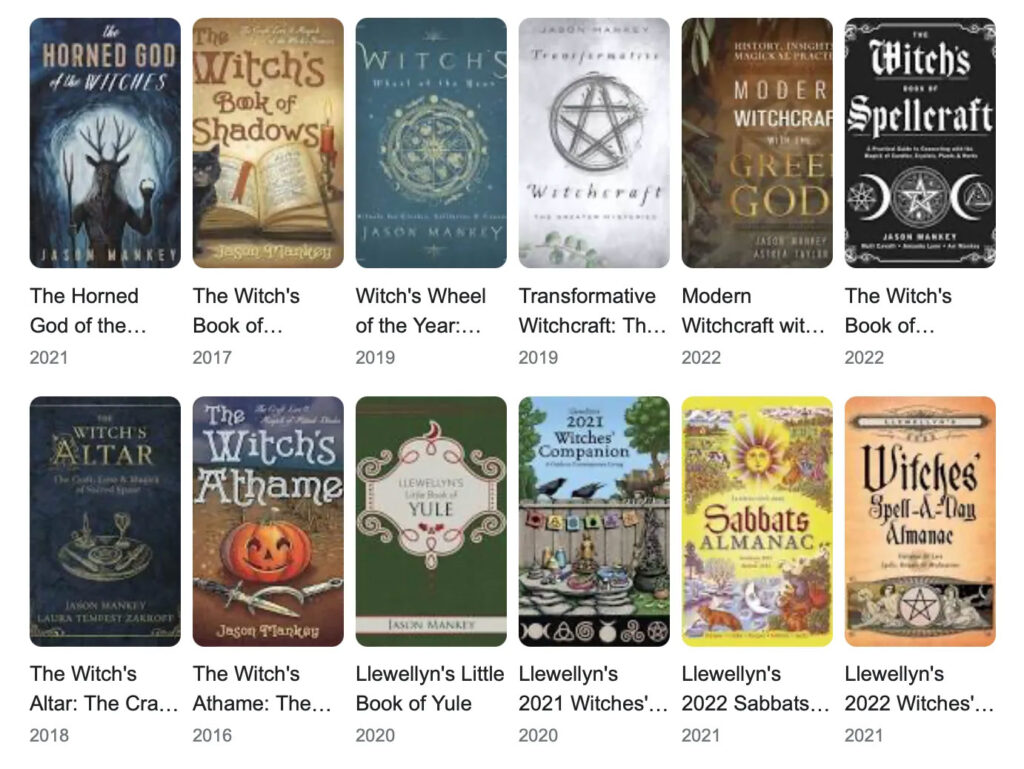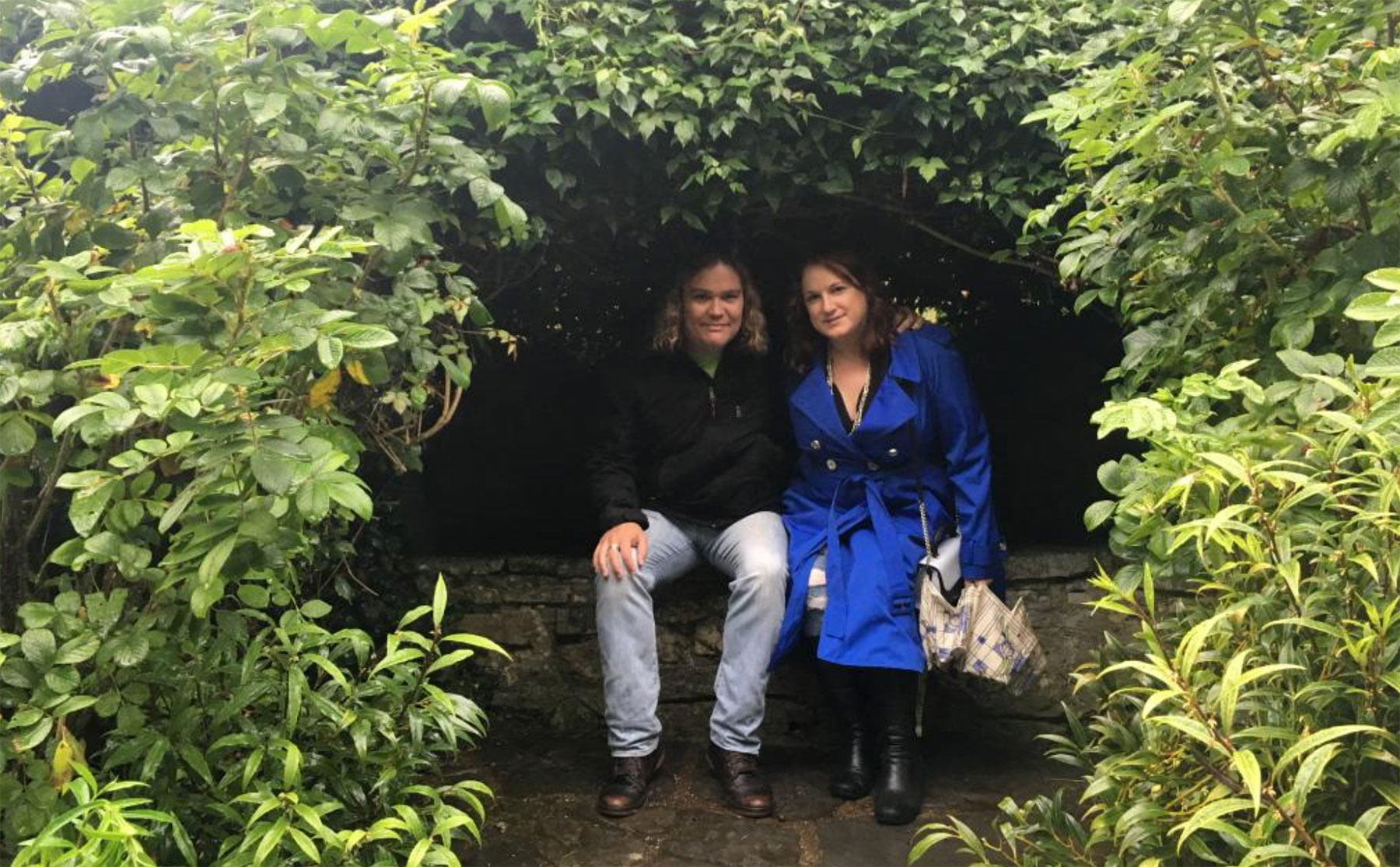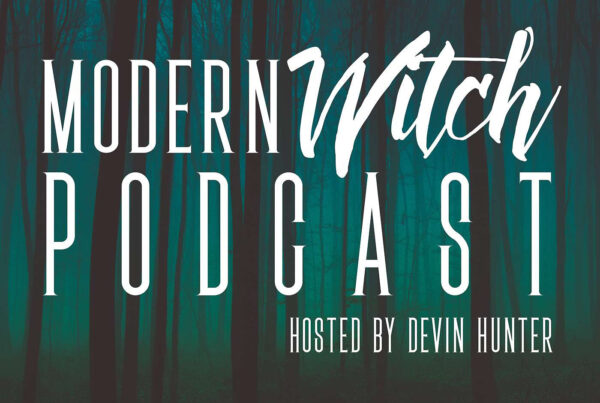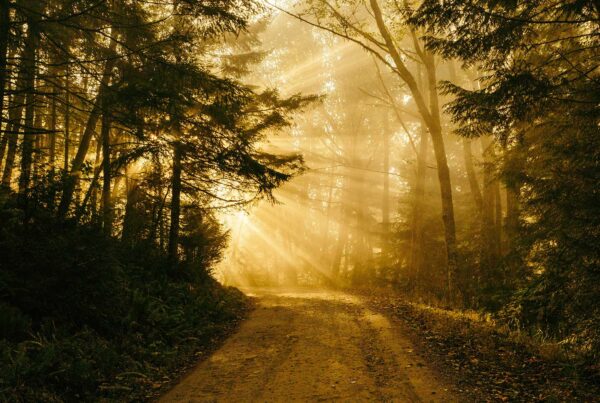Jason Mankey is a third-degree Gardnerian High Priest and helps run two Witchcraft covens in the San Francisco Bay Area with his wife, Ari. He is a popular speaker at Pagan and Witchcraft events across North America and Great Britain and has been recognized by his peers as an authority on the Horned God, Wiccan history, and occult influences in rock and roll. You can follow him on Instagram and Twitter @panmankey. Jason is the author of several books, including The Witch’s Book of Spellcraft, The Horned God of the Witches, and Transformative Witchcraft.
Can you describe your journey into practicing modern witchcraft? What initially drew you to this path?
I grew up in the American South just outside of Nashville Tennessee and lived up to many of the stereotypes that conjures up. I was President of my (Methodist) church youth group and had a cross on my high school class ring. But I began to drift away from Christianity about when I turned 20. I have a gay brother and the church taught that was wrong, but my brother was not “wrong” and I just couldn’t accept what the church was telling me.. So I began taking a serious look at other forms of spiritualities and re-stumbled across Wiccan-Witchcraft at the age of 21.
I had previously read about Wicca in junior high school, but back then I couldn’t overcome my Christian conditioning, so it was something I was aware of but wasn’t ready to embrace. I was a different person at 21 and was ready for it this time. I fell in love with Witchcraft (Wicca is a type of Witchcraft, but not the only type) because it just made more sense than Christianity. A religious path that honored the turn of the seasons and the divine feminine appealed to me, and perhaps more importantly made sense to me. I also love that Witchcraft is not full of judgement. People who disagree with my spiritual proclivities are not doomed to an afterlife of eternal torment.
How do you define modern witchcraft, and how does it differ from traditional or historical practices?
That’s a great question because definitions of “Witchcraft” are constantly changing and evolving. Twenty-five years ago “Witchcraft” and “Wicca” were interchangeable, with most modern definitions of Witchcraft describing it as a religion venerating a Goddess, God, and the natural world. Today “witchcraft” Is more synonymous with “magic user,” and doesn’t necessarily suggest a religious or spiritual life. For me a Witch is someone who says they are a Witch. If a person identifies as a Witch, they are a Witch!
Historically witchcraft referred to negative or maleficent magic. Today’s Witches use magic to better their lives and the lives of those they care about.
What are some of the main principles or beliefs that guide your witchcraft practice?
I believe that magic is real, and that is a major lodestone. Magic does not involve shooting lasers out of your fingers, but using natural energy for growth and change. If I’m looking for a new job or opportunity I can use magic to put the odds of finding what i’m looking for in my favor. Magic has the power to change things, but perhaps most importantly it empowers us to be the best versions of ourselves.
A lot of my daily practices as a Witch revolve around deity. I like pouring libations to the gods of our house, most notably Aphrodite and Dionysus, and honoring them day to day. I also think being a Witch just makes me more aware of what is going on around me. I pay more attention to the sun and the moon and the turn of the seasons. I’m not sure that I live “in harmony” with the earth, that’s nearly impossible to do in our destructive capitalist society, but I am cognizant of my environmental choices.
How do you incorporate witchcraft into your daily life? Are there specific rituals or routines you follow?
I’d love to tell you that I begin each day with a meditation to get in touch with the Goddess, a Tarot card pull, and the blessing of a crystal for magical purposes, but most of my days are rather mundane. I do burn incense most days as an offering, and spend some time outside, usually going for a walk and eating breakfast on my porch. I also have a garden that I like to check on that brings me closer to the cycle of the seasons, but most people would be pretty disappointed with how mundane my day to day life is. As a writer I spend a lot of time WRITING about Witchcraft most days, but that’s not the same as practicing it.
In what ways do you connect with nature and the elements as part of your practice?
Mostly by just being aware of nature. I love watching the rise and fall of the plants in my backyard every year. I know when certain fruit trees are going to produce fruit, and when they are going to lose their leaves. I grow a lot of sunflowers and those flowers rise and fall two or three times throughout the year (I live in California where I can grow things mostly year round).
Many Witches celebrate the sabbats, eight holidays that chart the turn of the seasons; the sabbats are celebrated on the equinoxes, solstices, and “cross-quarter” days between the solstices and equinoxes each year. The sabbats are opportunity to take stock in where you are on the yearly journey, and where the earth is. A lot of the ways we celebrate the sabbats are connected to the natural world. For instance we celebrate the rebirth of the sun on the Winter Solstice (Yule) and living a balanced life on the equinoxes.
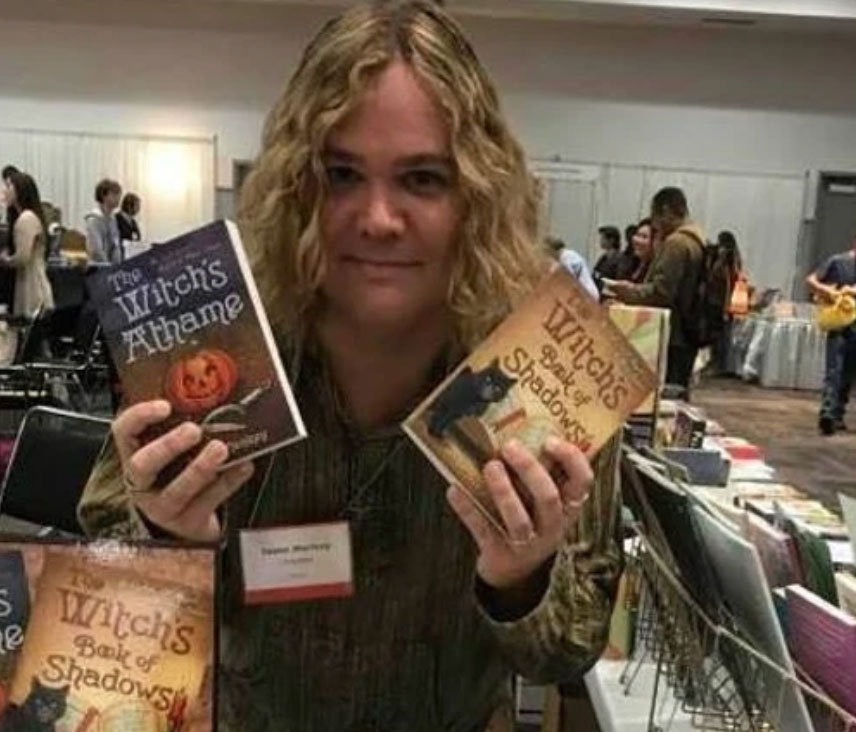
Witchcraft often involves working with energy and intention. Could you explain how you harness these forces in your spellwork or rituals?
Energy is all around us. Energy is what makes the wind blow and the seed sprout. Witches believe you can harness this energy, fill it with intent, and send it out in the world to bring about change in your life. Energy by itself is neutral, it’s up to the individual Witch to fill that energy with intention.
All of the “things” around us have energy, and a Witch utilizes the energy of those things for magic too. That’s why stones and crystals are often used in spellwork, they have certain energies and when we direct those energies towards certain goals we are working magic. Herbs, plants, oils, incenses . . . . all sorts of things have energy we use for spells! What I don’t suggest using for spellwork are mass produced things made out of plastic. Those things do have energy, but it’s nasty energy because of the process used to create such items.
Modern witchcraft places emphasis on self-care and personal empowerment. How do these concepts play a role in your practice?
I think Witchcraft is having a moment primarily because it is empowering. It allows practitioners a level of control over the environment around them. The last seven years have been crazy, and it often feels like things are spiraling out of control. We had a certain President intent on taking away the rights and liberties of people and trampling over political norms. And then there was COVID . . . . it’s been a rough cycle. I don’t think magic can solve every problem, but it makes me feel stronger and allows me to face the challenges in the world with confidence.
Witchcraft can be a solitary practice or involve group activities. Do you typically practice alone, or do you engage with a community of like-minded individuals?
I am a terrible solitary Witch. I have two covens and I need those covens in order to be an effective Witch. My coven keeps me accountable and keeps me in touch with the gods and the natural world. There’s also an extra degree of ooomph that comes from doing magic with a group. If someone thinks magic is strong individually, it’s even stronger when done with twelve friends!
As an author I also get invited to a lot of events, and I typically lead a ritual or two at these events. Doing ritual with a group of people you don’t know very well is a very different experience than a coven rite, but the “unknown factor” of it can make those types of rituals even more fun. I think most Witches are good people, and I like doing things with them.
The use of tools such as crystals, herbs, and tarot cards is common in witchcraft. How do these tools contribute to your practice, and what significance do they hold for you?
On a day to day to basis? Not a whole lot, but they are all things I use with my coven on a regular basis. We use crystals and spells in our magical work, and we often pull tarot cards to see where we are on our personal journey, and where we are as a group. I’m not sure tarot cards always reveal “the future” but they provide clarity when assessing a situation.
In what ways have you faced misconceptions or stereotypes?
I don’t get a whole lot of that. My friends outside of Witchcraft either find it interesting, or just don’t talk to me about it. (I’m fine either way!) Twenty years ago there were occasional questions about worshipping the Christian concept of the Devil, and every great once in a while I’ve run into people who think “witches” sacrifice babies at Halloween, but those are outliers. And those people continued to engage with me, making me wonder how much they actually believed the nonsense coming from their mouths.
Lately I’ve had more trouble overcoming the stereotypes in the Witchcraft community! Some of my Witchy friends are horrified that I like (gulp!) football and would rather go to an NFL game than charge a crystal. In a whole host of ways, the average Witch is much like the average person, it’s just that we are likely to spend a couple of hours a week burning candles and chanting at the moon.
How do you approach the ethical aspects of witchcraft, such as the use of magic for personal gain or influencing others?
In my early years of Witchcraft I used to read a lot about the Wiccan Rede of “an it harm none, do what ye will,” an ethical standard for Wiccan-Witches. Many Witches over the decades have mistaken the Wiccan Rede for a law, but “rede” simply means “counsel or advice,” and like most counsel and advice, Witches are free to heed the Rede or ignore it.
The reasoning behind the Rede is mostly positive. If the only type of magic a Witch engages in is destructive or negative, I think they are actively bringing that negative and destructive energy into their lives. A Witch who curses everyone around them is most likely a pretty miserable person. And the PR boost of the Wiccan Rede was a good one in the 1980s and early 1990s when Witches were actively dealing with the Satanic Panic.
But at the same time a little magic to influence someone else can be a good one. If there is a predator at my place of work, why not work magic against that person? Maybe I even have a responsibility to do so? I’m not someone who does a lot of hexing or cursing, but if someone is being awful, I think it can be justified.
And magic for personal gain? Absolutely. That’s what magic is for. I wouldn’t want that gain to result from the misfortune of others, but use magic all you want to secure a house, a job, or to fall in love.
Modern witchcraft often intersects with spirituality. Can you share how your practice intertwines with your personal spiritual beliefs, if at all?
For me my Witchcraft is my spirituality! Magic, the sabbats, chosen family, all of those things are aspects of my spirituality.
The first modern public Witches came forward in the 1950s, and most of those Witches believed in reincarnation. They also believed that reincarnation was not entirely random, nor a result of the accumulation of karma from incarnation to incarnation. Instead we are reborn “in the same place and the same time as our loved ones so that we might meet, know, remember, and love them again.” That idea has always resonated with me. I feel like I have known the fiercest loves in my life from a time before this time.
Calling Witchcraft a reincarnation cult is not something you hear with a lot of frequency, but in many ways that is exactly what it is to me!
